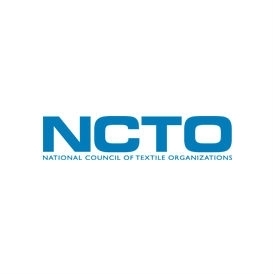NCTO Testifies at Hearing on US-Mexico-Canada Agreement
The National Council of Textile Organizations (NCTO) testifies at a recent hearing by the U.S. International Trade Commission (ITC) on the U.S.-Mexico-Canada Agreement (USMCA).

WASHINGTON, D.C.-The National Council of Textile Organizations (NCTO) testifies at a recent hearing by the U.S. International Trade Commission (ITC) on the U.S.-Mexico-Canada Agreement (USMCA). Auggie Tantillo, CEO of the NCTO represented the organization at the Nov. 16 session.
Appearing on the General Manufacturing panel, Tantillo’s testimony discussed the impact of the agreement on the U.S. economy and more specifically, the textile industry. While the organization has yet to adopt a formal position on the USMCA, Tantillo highlights figures from previous agreements.
“It is important to note that the United States, Canada, and Mexico have built a vibrant and prosperous textile production chain over the 24-year life of the North American Free Trade Agreement (NAFTA),” states Tantillo in published testimony. “In 2017, total textile and apparel trade between the three countries was approximately $20 billion. U.S. exports accounted for more than $11 billion of this trade, with Canada and Mexico serving as our two largest export markets worldwide.”
Tantillo explains that the NCTO is “pleased that the basic textile origin rules adopted originally in NAFTA” are reaffirmed in the USMCA. The testimony also highlights what the organization considers improvements over the original agreement, including the requirement of USMCA-origin sewing thread, pocketing, narrow elastics, and coated fabrics in certain end items; and the Buy American statute. The statute requires that textiles purchased for the Coast Guard and TSA be 100 percent American-made with few exceptions.
Despite these improvements, Tantillo says the organization finds one “key area of disappointment” with USMCA. “NAFTA incorporated a major exemption to the yarn-forward origin requirement through a system of Tariff Preference Levels (TPLs),” he states.
These levels allow products to ship duty-free even if components within products sourced from countries that are not part of the trade agreement. More than $641 million in textile and apparel TPL shipments entered the U.S. last year, according to the testimony.
“As such, eliminating the TPLs was a primary focus of NCTO’s in the NAFTA renegotiation,” states Tantillo. “While USMCA did reduce the size of some specific TPLs, the reductions will not cut into existing trade levels. This outcome is frustrating given the President’s stated goals of increasing benefits for U.S. manufacturers and eliminating provisions that have helped non-signatory countries, such as China, take advantage of tariff preferences intended for North American producers.”
Tantillo says that while the organization is not prepared to communicate a formal position on USMCA, the NCTO plans to finalize its decision soon and subsequently share it with Congress.
To read the full testimony, visit http://www.ncto.org/ncto-testifies-at-u-s-international-trade-committee-hearing-on-usmca/.